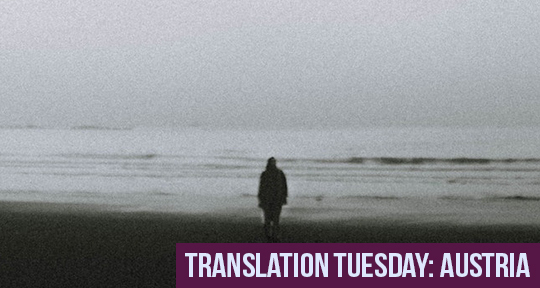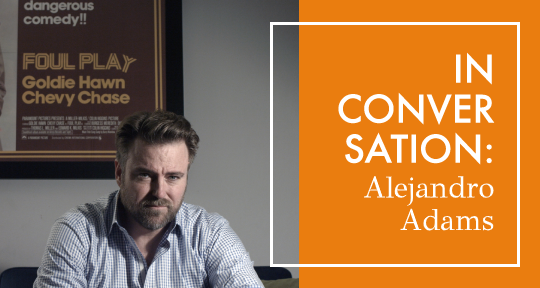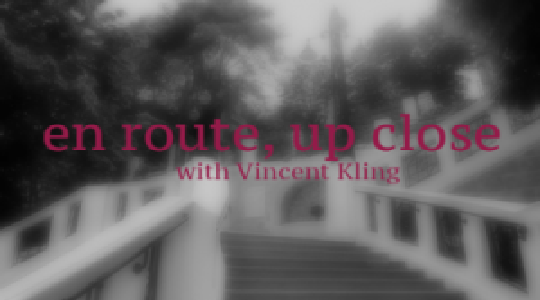Alejandro Adams is a writer and filmmaker whose pictures include Canary (2009) and Babnik (2010), both about the buying and selling of body parts. (The latter involves sex-trafficking, the former organ-harvesting.) He is also the director of Around the Bay (2008) and Amity (2012).
Though Adams is an Anglophone filmmaker—most readily understood by his audiences in terms of a broadly New World sensibility—it does not follow that his films are Anglophone or monolingual: they comprise substantial Russian, German, and Vietnamese in addition to their English. Of interest to the Asymptote reader in Adams’ work are the complex translation dynamics involved in their trans-linguistic performance and production; Adams writes in English for multilingual casts and asks them to reproduce iterations or facsimiles of certain script segments in their respective languages. Then, returning the recorded dialogue to English in post-production, Adams subtitles with at least as much attention to his cinematic vision as to denotative content. (He discusses this process in more detail in an interview with Vadim Rizov, explaining, “We agreed from the beginning that I’d subtitle it however I wanted—the whole thing is fiction, why should I have any fidelity to translating dialogue?”) I originally recruited Adams for a conversation about the forms and functions of this multilingualism in his pictures, but when we actually spoke, the conversation expanded to include a broader range of visual and sonic signification in narrative cinema.
Rachel Allen (RA): I thought we could start by talking about your second feature, Canary, which features long passages of untranslated (unsubtitled) Russian, Vietnamese, and German. There are also these long, garrulous scenes—I’m thinking of the workplaces especially—of undifferentiated dialogue. The parallel I see between those two kinds of scenes is in their seeming disregard, at least from a narrative or expositional perspective, for the semantic content of language, suggesting that the narratively relevant stuff isn’t in individual propositions. But the dialogue in those scenes is also so specific to its context, and to the individual characters within them, which suggests to me that someone is attending very carefully to the language, even at the level of individual words. I wondered if you see or feel that tension in Canary, between attention to and disregard for language. Or words, maybe: is this a film that sees distinctions between “words” and “language” and “communication”? Does Canary distrust words? (Do you?)
Alejandro Adams (AA): You’re asking if I believe in language, or words, and I’m reminded of another interview I did where the first question was “Do you believe in morality?” It was about one of my other films, but the idea that I don’t put stock in some fundamentally human aspect of existence is troubling. These questions stop you in your tracks, but they also demonstrate that these films are made by someone who obviously can’t handle water cooler talk so let’s go for the throat, no appetizer.
About words themselves and the way words are used to create a texture in the film, the hyper-specific dialogue is extremely scripted—even the overlaps, like the litany of things one can do with a partial organ. Other material is entirely improvised but orchestrated down to how many times an actor touches a child’s toy or picks up a phone. So it would seem that I have all this vision around the sonic impact of human speech, trying to make an office lobby feel as chaotic as the beachhead in Saving Private Ryan, but what I really wanted was silence.
READ MORE…



